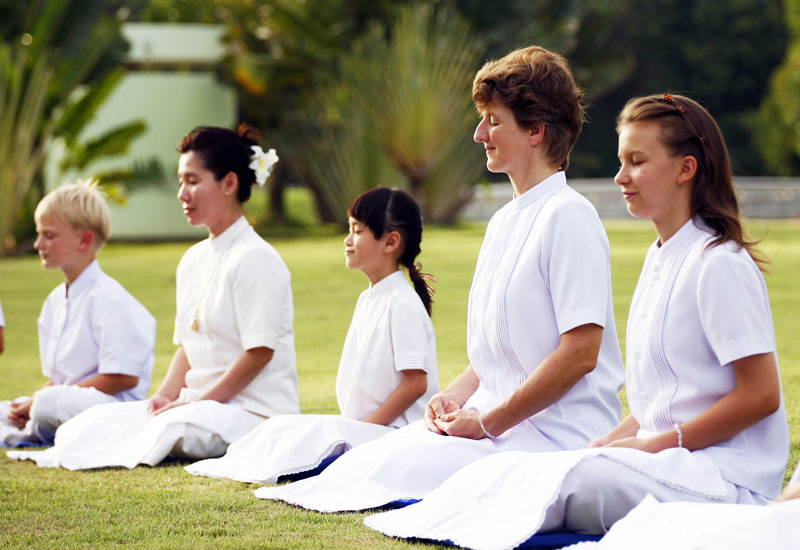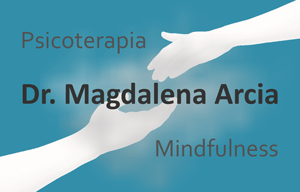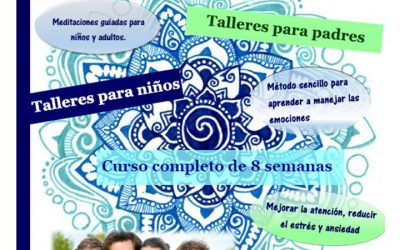
Mindfulness
“Mindfulness” refers to a set of practices that together help us focus attention on the present moment without judging the event or action, with a kindly attitude.
It is based on Meditation, Conscious Movements as in Yoga, Tai-Chi or Pilates, together with Cognitive-Behavioral Psychotherapy. The three disciplines help increase awareness of the present moment, enhance the ability of observation and care, reducing automatic or impulsive responses.
It helps develop the ability to pay attention intentionally, moment to moment. Mindfulness helps us to experience things that happen in our lives with curiosity, nonjudgmentally and with compassion toward others, as well as towards ourselves.
It is clinically proven that the continuous practice of Mindfulness is as effective as other therapies for mood disorders, and with excellent results in people who have difficulty dealing with the constant demands of our hectic lives. It’s a practice that promotes happiness and confidence in ourselves, reducing levels of anxiety, stress, and irritability. We learn to be present and aware of every act we perform. Mindfulness gives us an opportunity to open our minds to the positive signs of life. If you want a fuller life, Mindfulness is a scientific support that gives us a strong foundation to face with confidence the challenges and demands of life.
“The starting point for those wishing to teach this discipline is having trained in psychotherapy, or as professionals with experience in mental health mood disorders. It is also essential to have psychological training or cognitive behavioral therapy”.
Dr. Zindel Seagal, Dr. Mark Williams, and Dr. John Teasdale
MBCT Authors and creators of the program
“The basic understanding and guidance of the instructor are the important variables that influence this process. Whether the instructor realizes it or not, this understanding colors the way each practice is presented, each interaction is handled”.
Jon Kabat Zinn
Father of Mindfulness.
Mindfulness is aimed at all those interested in developing self-knowledge skills, improve physical and mental health and their general welfare. It is especially useful for health professionals and educators of all ages. You do not need prior knowledge of Mindfulness.
When we learn the fundamental concepts and practice this technique on a regular basis, we will be more skilled and creative, learn how to manage our emotions and responses to any situation, we free ourselves from anticipating the future with anxiety or become over whelmed by past events. And therefore we get a fuller sense out of our lives and cultivate being happier day to day.
MINDFULNESS for chidren
Mindfulness is the ability of the mind to pay attention to what is happening here and now, becoming aware of every moment we live. Recent scientific studies highlight its effectiveness for the general welfare of all people, and is increasingly being implemented in medicine and psychotherapy.
Children, in their purest form, teach us to live in the moment, but as time passes, they lose that ability to live in the present, and as adults, they learn to anticipate events, to become anxious about things that have not happened yet, or to worry about things from the past that cannot be changed.
“Mindfulness for children” helps them keep that pure state of being able to enjoy the present moment, developing their attention span and ability to focus, especially in their school work and in their learning process, it helps them to manage their emotions and gain better balance, to develop the ability of resilience, and improve the quality of family relationships.

Teaching Mindfulness to our children can be a great help, especially to those whose minds are scattered, afflicted, and too distressed by the number of demands that life often imposes on them. Mindfulness helps them to become reassured by helping them reestablish their center of emotional balance. Children today are immersed in environments of overstimulation which can certainly be toxic for their minds. Mindfulness is an important tool to help children cope with all the demands of everyday life, and above all, to help them cultivate and live life with more humanity as they become aware of how to be better adults.
Through guided meditation exercises for children and conscious movements, Mindfulness leads us to respect life and to enjoy every moment more to its fullest. Mindfulness is a gift we can give children so they can use along their lifetime.
Courses and Workshops
Mindfulness Based Stress / Anxiety Reduction Program
MINDFULNESS: STRESS AND ANXIETY REDUCTION PROGRAM Based on the scientific program from the University of Massachusetts, USA. A simple but yet highly effective method to live your life with higher conscious awareness, calmer and more plentiful in order to gain a better...
Mindfulness: Let Go of Your Fears and Build a Balanced Life
Living a balanced life is one of the biggest challenges we face today, and everything seems to get worst when we are stressed... Can you apply this to yourself? When your time is taken up by too many demands, your stress goes up, and it is likely that your anxiety...
Mindfulness 4 Kids
Dr. Magdalena Arcia, Psychotherapist and Mindfulness Instructor
Dr. Magdalena Arcia, Psychotherapist and Mindfulness Instructor
“You have the Power to Change Your Life”, interview with Dr. Magdalena Arcia
Radio Almansilla, Rocio Castro's program, "Tú tienes el Poder de Cambiar tu Vida" (You have the Power to Change Your Life), interview with Dr. Magdalena Arcia, Mindfulness and how it helps us live a more conscious and fuller life. www.ivoox.com/18382181. 27/4/17.
Mindfulness For Parents and Children
Mindfulness practice for Parents and their Children in a bilingual setting, Spanish and English. Children, from as young as 4 years old can learn and share meditations and enjoy doing creative activities among family members while developing a better and more...
MINDFULNESS BASED STRESS REDUCTION PROGRAM FOR TEACHERS AND THE CLASSROOM. Erasmus + / IDevelop Teacher Training for European Community.
As teachers, Mindfulness is an outstanding tool to help your students cultivate being present; presence of mind, presents of heart, and presence in the body; qualities we don’t usually cultivate intentionally. Inner calm and mindfulness are necessary in order to improve children’s performance, and as teachers, to be able to teach well. Why not start training these capacities at an early age?
MINDFULNESS PROGRAM FOR BETTER SELF AWARENESS, REDUCTION OF STRESS AND ANXIETY
Excellent program developed for stress reduction, but goes way beyond that. It helps you develop greater awareness into your present moment and thus enjoy life to the fullest. It has been scientifically proven that Mindfulness enhances the auto-inmune system, preventing physical illnesses from appearing.
Mindfulness Meditation Group
As I have been planing for some time now, I have finally started a Mindfulness Meditation Group (in English) where we will be meeting once or twice a month so we can continue sharing: Guided Meditations, Readings from recent research findings, and other literature...


